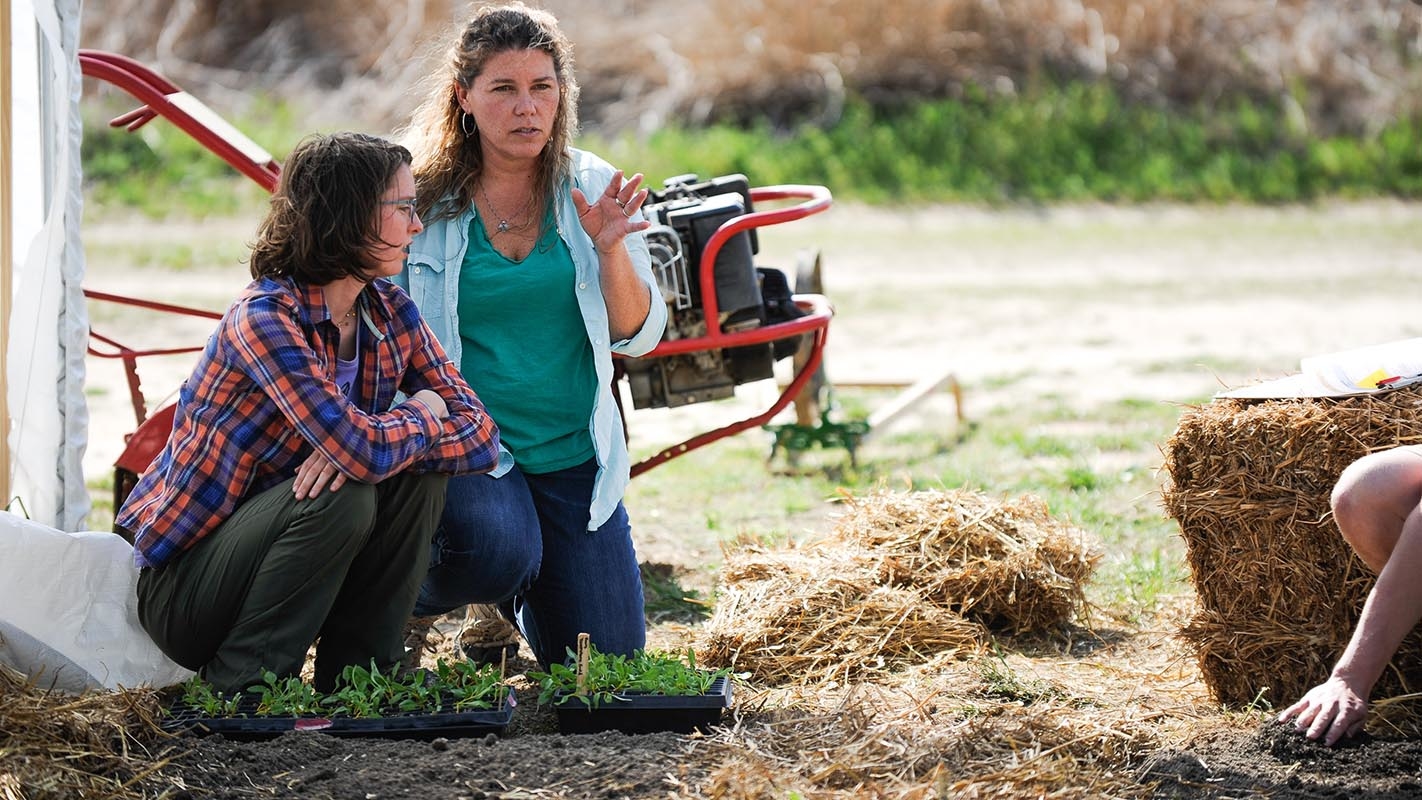CALS’ Newest Major: Agroecology and Sustainable Food Systems

By JJ Richardson
The start of a new academic year at NC State University brings an innovative, new multidisciplinary major in the College of Agriculture and Life Sciences: the bachelor of science in agroecology and sustainable food systems.
Agroecology integrates ecology with agriculture for the development of sustainable agricultural practices and food systems. Through systems-level understanding, agroecologists are able to develop sustainable solutions to local and global agriculture and food challenges.
The new major is offered through the CALS departments of Crop and Soil Sciences and Horticultural Science and is directed by Michelle Schroeder-Moreno, a crop and soil sciences professor and assistant director of educational programs for the Center for Environmental Farming Systems.
The program will provide future food system leaders with the interdisciplinary knowledge, real-world experiences and professional networks to help develop sustainable solutions for agriculture and food system challenges now and in the future.
“Demand for graduates in agriculture is stronger than ever, especially for those with knowledge of sustainability,” says Schroeder-Moreno. “This agroecology and sustainable food systems major will prepare students for diverse careers with courses taught by faculty experts in sustainable agriculture, unique hands-on learning and community engagement experiences, and professional development opportunities through internship and research experiences.”
The program offers students three concentration areas: agroecology research and production, community food systems and urban horticulture.
Grace Baucom, an NC State Park Scholar from Chapel Hill, is among the pioneering students that make up the agroecology and sustainable food systems program’s inaugural class. She calls the undergraduate major tailor-made to her interests in building a strong foundation for a future in sustainable agriculture.
Learn more at go.ncsu.edu/agroecology
This post was originally published in College of Agriculture and Life Sciences News.